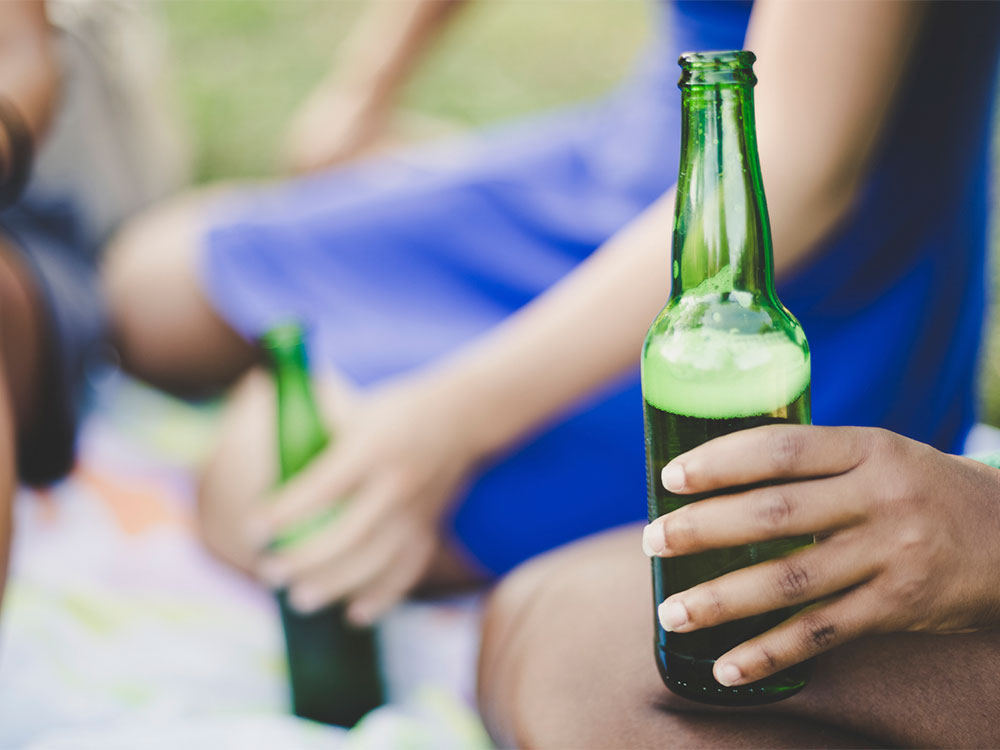Lifestyle
NACADA To Raise The Legal Drinking Age to 21, Bans Home Alcohol Deliveries in Sweeping Anti-Abuse Crackdown
Alcohol outlets will be prohibited from operating within 300 meters of learning institutions, places of worship, and residential estates—a zoning law that could force thousands of bars to relocate or shut down if properly enforced.

New NACADA policy targets youth alcoholism with toughest restrictions yet
NAIROBI, Kenya – The Kenyan government has announced its most comprehensive assault on alcohol abuse yet, raising the legal drinking age from 18 to 21 and banning online alcohol sales and home deliveries in a bid to combat what officials describe as a crisis “quietly devastating families and draining national productivity.”
The sweeping reforms, outlined in the newly unveiled 2025 National Policy on Alcohol, Drugs and Substance Abuse, represent the government’s boldest intervention in a sector that contributes billions to the economy but exacts an enormous social toll.
Cabinet Secretary approval granted on June 24 empowered the National Authority for the Campaign Against Alcohol and Drug Abuse (NACADA) to enforce the proposed changes in collaboration with county governments, law enforcement agencies, and community leaders nationwide.
The policy comes as stark new statistics reveal the scope of Kenya’s alcohol challenge: nearly 13 percent of Kenyans aged 15 to 65—approximately 4.7 million people—consume alcohol, with the highest prevalence among youth aged 18 to 24.
Perhaps most troubling, nearly one in 10 high school students admit to having consumed alcohol, while children as young as six to nine years old are being exposed to alcohol in their homes and neighborhoods.
“The average age of first drink continues to drop,” the policy document notes, highlighting the urgency behind the government’s intervention.
The age increase aligns Kenya with countries like the United States, where research has demonstrated that delaying legal access reduces youth drinking and related harms.
Health experts argue early exposure contributes to lifelong addiction, poor academic outcomes, gender-based violence, and rising mental health issues.
Beyond age restrictions, the policy introduces sweeping changes to alcohol retail and marketing.
Alcohol outlets will be prohibited from operating within 300 meters of learning institutions, places of worship, and residential estates—a zoning law that could force thousands of bars to relocate or shut down if properly enforced.
The government is also targeting what it sees as the digital pipeline enabling underage drinking.
Home deliveries, vending machines, and online alcohol sales will be banned outright, eliminating the convenience that allows teenagers to order alcohol with “just a few taps on their phones.”
Marketing restrictions represent another pillar of the crackdown.
NACADA reports that nearly one in four teenagers first tried alcohol after seeing celebrity endorsements or alcohol advertisements online or on billboards.
The new policy bans outdoor advertising, social media promotions, and celebrity endorsements, while prohibiting alcohol ads during children’s TV programs, school events, and public holidays.
All alcohol containers will be required to carry health warnings in both English and Kiswahili.
The policy marks a significant shift in approach, recognizing alcohol and drug addiction as a health issue rather than solely a criminal offense.
The government plans to expand public treatment and rehabilitation centers at both national and county levels, integrating these services into the Social Health Authority (SHA) to improve accessibility for ordinary families.
A new Solatium Compensation Fund, financed through levies on alcohol and drug sellers, will help cover treatment costs, aftercare, and reintegration for recovering addicts.
County governments will play a crucial role, with each required to pass supportive legislation and establish Alcohol and Drug Control Committees with dedicated budgets for monitoring outlets, conducting public education, and supporting local rehabilitation programs.
The policy also addresses the digital age’s challenges, with NACADA working alongside the Communications Authority of Kenya, the DCI’s Cybercrime Unit, and the Kenya Film Classification Board to monitor harmful content, shut down illegal online sellers, and remove alcohol-related content targeting minors.
While Kenya’s alcohol industry contributes significantly to the economy through taxes and job creation, NACADA estimates that alcohol abuse contributes substantially to domestic violence, school dropouts, crime, and costly hospital admissions—costs that far outweigh the economic benefits.
The success of these ambitious reforms will largely depend on enforcement—an area where Kenya has historically struggled. Over the past decade, government crackdowns have led to thousands of illegal bars being shut down and unlicensed brewers arrested, but poor enforcement, bribery, and weak oversight have often allowed them to reopen quietly.
The 2025 policy represents a test of whether Kenya can finally break this cycle and meaningfully address a crisis that touches millions of lives across the country.
Kenya Insights allows guest blogging, if you want to be published on Kenya’s most authoritative and accurate blog, have an expose, news TIPS, story angles, human interest stories, drop us an email on [email protected] or via Telegram
-

 Investigations2 weeks ago
Investigations2 weeks agoInside Nairobi Firm Used To Launder Millions From Minnesota Sh39 Billion Fraud
-

 News2 weeks ago
News2 weeks agoUnfit for Office: The Damning Case Against NCA Boss Maurice Akech as Bodies Pile Up
-

 News2 weeks ago
News2 weeks agoDeath Traps: Nairobi Sitting on a Time Bomb as 85 Per Cent of Buildings Risk Collapse
-

 News2 weeks ago
News2 weeks agoRaila Bodyguard Maurice Ogeta Appointed As Mombasa Security County Adviser
-

 Business3 days ago
Business3 days agobetPawa Empire Crumbles: Mr Eazi’s Betting Gambit Unravels Amid Partner’s Shadowy Deals
-

 Investigations7 days ago
Investigations7 days agoKERRA Homa Bay Region Manager Calvince Thomas Accused of Swindling Businessman Ksh 2 Million in Phantom Tender Deal
-

 Business3 days ago
Business3 days agoKRA Boss Humphrey Watanga In Big Trouble In Sh5.5 Billion Rice Import Scandal
-

 Business7 days ago
Business7 days agoTreasury’s Sh40 Billion Safaricom Gamble Could Cost Kenya Trillions, Auditor Warns


















